Table of Contents:
Understanding Dog Vomiting and Diarrhea
When your beloved pet shows signs of distress, it's crucial to recognize what you're dealing with. Vomiting and diarrhea are two symptoms that often appear together when your dog is experiencing gastrointestinal upset. While these symptoms can be alarming, understanding them is the first step toward providing the right care.
Vomiting is the forceful ejection of stomach contents through the mouth. It can be a one-time event caused by something as simple as overeating or it could indicate something more serious, such as an infection or ingestion of a toxic substance. Conversely, diarrhea involves frequent, loose, or liquid bowel movements and can result in dehydration if not addressed promptly.
Both are common reactions to a variety of triggers, including dietary indiscretion, allergies, infections, stress, parasites, and more. While these symptoms often resolve on their own, it is essential to monitor your dog closely. Continuous or severe episodes could signify a more significant health issue that requires veterinary attention.
By staying informed on the potential causes and implications of vomiting and diarrhea in dogs, owners can provide better care and make more informed decisions regarding their pet's health.
Common Causes of Gastrointestinal Upset in Dogs
Gastrointestinal upset in dogs can be due to a wide range of factors. It's vital for dog owners to recognize these triggers to prevent or promptly address issues when they arise. Some of the most frequent causes include:
- Dietary indiscretion: Dogs that eat too quickly, consume spoiled food, or ingest non-food items are likely to suffer from stomach distress.
- Changes in diet: Sudden changes to your dog's diet can disrupt their digestive system, leading to vomiting or diarrhea.
- Infections: Viral, bacterial, or fungal infections can compromise your dog's gastrointestinal tract, resulting in vomiting and diarrhea.
- Parasites: Worms and other parasites can cause significant irritation to your dog's intestines.
- Toxins: Ingestion of toxic substances, such as poisonous plants or chemicals, is a serious health threat that often results in gastrointestinal symptoms.
- Allergies and sensitivities: Just like humans, dogs can have allergic reactions or sensitivities to certain foods or environmental factors, leading to digestive issues.
- Medications: Side effects from certain medications can include gastrointestinal upset.
- Underlying medical conditions: Health issues like pancreatitis, liver disease, or kidney problems can manifest as vomiting and diarrhea.
Identifying the cause behind your dog's gastrointestinal upset is crucial for providing the appropriate care and preventing further health complications.
Managing Canine Digestive Disturbances: Remedies, Precautions, and Considerations
| Remedies and Precautions | Considerations |
|---|---|
| Identifying allergens can prevent future occurrences. | Some conditions may require extensive and costly testing. |
| Home remedies can be effective for mild cases. | Incorrect treatment can exacerbate the situation. |
| Proper hydration helps flush out toxins. | Keeping a sick dog hydrated can be challenging. |
| Consulting a vet ensures a professional diagnosis. | Emergency veterinary services can be expensive. |
| Dietary adjustments can improve digestive health. | Determining the ideal diet may involve trial and error. |
Recognizing the Signs: When Your Dog Throws Up and Has Diarrhea
If you notice that your dog threw up, it is important to observe the frequency, content, and the dog's overall behaviour. Occasional vomiting may not be alarming, but repeated episodes can be a sign of a more serious condition. Similarly, diarrhea is concerning when it persists or is accompanied by additional symptoms such as lethargy or a change in appetite.
Signs that require immediate attention include:
- Blood in vomit or stool: This can point to internal bleeding or severe gastrointestinal issues.
- Unusual stool colour: Black, tarry stools or very pale-coloured stools can indicate a health problem.
- Changes in behaviour: If your dog seems unusually tired, uninterested in normal activities, or is showing signs of pain or discomfort, these could indicate that the vomiting and diarrhea are symptoms of a more serious issue.
- Dehydration: Vomiting and diarrhea can quickly lead to dehydration; signs include dry gums, weakness, and sunken eyes.
- Repeated occurrences: When these symptoms happen frequently, it's a signal that your dog needs veterinary care.
By attentively observing these signs and assessing their severity, you can decide the best course of action to take for your dog's health.
First Response: Immediate Steps to Take at Home
When you see your dog suffering from vomiting and diarrhea, it is essential to take prompt but careful action. Proper first response can help stabilize your dog's condition and may prevent the situation from worsening. Here are some recommended steps:
- Remove food: Temporarily withhold food to give your dog's stomach a rest. A period of fasting for 12 to 24 hours after vomiting can be beneficial, but always ensure fresh water is readily available.
- Provide water: Small sips of water or ice chips can help to keep your dog hydrated without overwhelming their sensitive stomach.
- Observe closely: Keep a close eye on your dog's behaviour and symptoms. Make note of any changes or continued issues, as these details can be crucial for your vet.
- Comfort and calm: Ensure your dog has a quiet, comfortable space to rest without stressors or disturbances.
When managing these initial steps at home, it's important to monitor your dog's condition carefully. If symptoms persist or worsen, seek veterinary assistance immediately.
Dietary Management: What to Feed a Dog with Vomiting and Diarrhea
As your dog recovers from vomiting and diarrhea, managing their diet is key to their continued recovery. After the initial fasting period, you can start to reintroduce food gradually. Stick to bland, easily digestible foods that will not irritate their system.
- Bland diet: Start with a bland diet that includes boiled white rice mixed with boiled, skinless chicken or ground turkey. These are gentle on the stomach and provide the needed nutrients.
- Small portions: Feed smaller amounts more frequently to ease your dog back into a normal eating pattern without overloading their delicate digestive tract.
- Gradual transition: Slowly mix your dog's regular food with the bland diet over several days, increasing the regular food proportionally each day.
When implementing a dietary management plan, make sure to observe how your dog responds to the new diet and adjust accordingly. If at any point the symptoms reoccur, consult with your veterinarian.
Hydration: Ensuring Your Dog Stays Hydrated
Maintaining hydration is critical when your dog is dealing with vomiting or diarrhea, as these conditions can quickly lead to dehydration. Here's how you can help ensure your pet stays adequately hydrated:
- Accessible fresh water: Make sure your dog has access to fresh, clean water at all times. After a vomiting episode, offer water in small amounts frequently rather than a large bowl all at once.
- Encouraging drinking: If your dog isn't showing interest in drinking water, you can encourage hydration by offering ice chips or incorporating fluids into their food.
- Rehydration solutions: In some instances, your vet may suggest an oral rehydration solution or electrolyte supplement specifically designed for dogs.
Monitor your dog's intake of water and watch for signs of dehydration. If you have concerns or notice that your dog is not drinking enough, contact your veterinarian for advice.
When to Call the Vet: Seeking Professional Help
While mild cases of vomiting and diarrhea can often be managed at home, there are certain situations where it is critical to seek veterinary care. Knowing when to call the vet can ensure your dog receives the best possible treatment in a timely manner.
- Persistent symptoms: If vomiting or diarrhea continues for more than 24 hours, professional evaluation is necessary.
- Intense symptoms: Severe, forceful vomiting or bloody diarrhea are signs you should immediately contact your vet.
- Dehydration indications: Should symptoms of dehydration manifest, such as dry gums, lethargy, or a sunken-in appearance of the eyes, reach out to your vet.
- Pre-existing conditions: Dogs with underlying health issues may require special care. Inform your vet promptly if your dog experiences gastrointestinal symptoms.
- Other alarming signs: If your dog shows any unusual signs, such as a distended abdomen, excessive panting, or collapse, seek veterinary attention as these could signify a life-threatening condition.
Your veterinarian can help determine the cause of your dog's symptoms and recommend an appropriate course of treatment. Don't hesitate to call if you're concerned about your dog's health.
Treatment Options for Vomiting and Diarrhea in Dogs
Treatment for vomiting and diarrhea in dogs will vary depending on the underlying cause and severity of symptoms. Your veterinarian may recommend one or more of the following treatments:
- Medications: Antiemetics to control vomiting, antidiarrheals to solidify stools or other medications to treat underlying conditions.
- IV fluids: In cases of severe dehydration, intravenous fluids may be necessary to quickly restore hydration and electrolyte balance.
- Dietary adjustments: A temporary shift to a bland or prescription diet can help soothe your dog's digestive system while it heals.
- Probiotics: These beneficial bacteria can help restore a healthy balance in the gut and support digestion.
- Parasite treatment: If parasites are the cause, your vet will prescribe an appropriate dewormer or parasiticide.
- Detoxification: In cases of toxicity, treatment may include activated charcoal, IV fluids, or other measures to clear the toxin from your dog's system.
Always follow your veterinarian's advice and complete the full course of any treatment prescribed to ensure your dog makes a full recovery.
Preventing Future Episodes: Tips for Dog Owners
After addressing an episode of vomiting and diarrhea, thoughtful preventative steps can help minimize the risk of future incidents. Following these tips can contribute to your dog's long-term gastrointestinal health:
- Maintain a consistent diet: Sticking to a regular feeding schedule and avoiding sudden diet changes can help prevent digestive upset.
- Choose quality food: Feeding your dog high-quality, well-balanced meals appropriate for their life stage supports overall health.
- Avoid human food: Many foods that are safe for humans can cause problems for dogs, so resist the urge to feed them table scraps.
- Keep hazards out of reach: Ensure potential gastrointestinal irritants, such as garbage, toxic plants, and chemicals, are inaccessible to your furry friend.
- Regular veterinary check-ups: Routine vet visits allow for early detection and treatment of issues that could lead to vomiting or diarrhea.
- Stay up-to-date on preventatives: Administering regular parasite preventatives can protect your dog from worm infestations that cause digestive troubles.
While it's impossible to prevent every instance of vomiting and diarrhea, these strategies can significantly reduce the likelihood of recurrence, keeping your dog healthier and happier.
Conclusion: Keeping Your Dog Healthy and Happy
Dealing with your dog's vomiting and diarrhea can be a stressful experience for both you and your pet. However, with careful observation, prompt action, and appropriate care, you can help your dog recover effectively and reduce the chance of future episodes. Remember to always monitor your dog's health, maintain their diet and hydration, and consult with your veterinarian when needed. By taking these proactive steps, you can contribute to your dog's overall well-being, ensuring they stay healthy and happy for years to come.
FAQ on Managing Vomiting and Diarrhea in Dogs
What initial steps should I take if my dog vomits or has diarrhea?
Initially, withhold food for 12 to 24 hours and provide small sips of water or ice chips. Observe your dog's behavior and symptoms closely, and ensure a comfortable, stress-free rest area for your dog to recover.
When should I consult a vet about my dog's vomiting and diarrhea?
Seek veterinary attention if symptoms persist for more than 24 hours, if vomiting or diarrhea is severe or contains blood, if signs of dehydration appear, or if your dog exhibits any other alarming symptoms such as a distended abdomen or excessive panting.
How can I prevent vomiting and diarrhea in my dog?
To minimize the risk, maintain a consistent diet, choose quality food, avoid feeding human food, keep hazards out of reach, ensure regular veterinary check-ups, and administer parasite preventatives routinely.
What should I feed my dog after vomiting and diarrhea?
After fasting, reintroduce a bland diet of boiled white rice and skinless chicken or ground turkey in small portions. Gradually transition back to regular food over several days while monitoring your dog's response.
How can I keep my dog hydrated if they are vomiting or have diarrhea?
Offer fresh water in small amounts frequently, use ice chips to encourage hydration, and consult your vet about oral rehydration solutions or electrolyte supplements if necessary.







